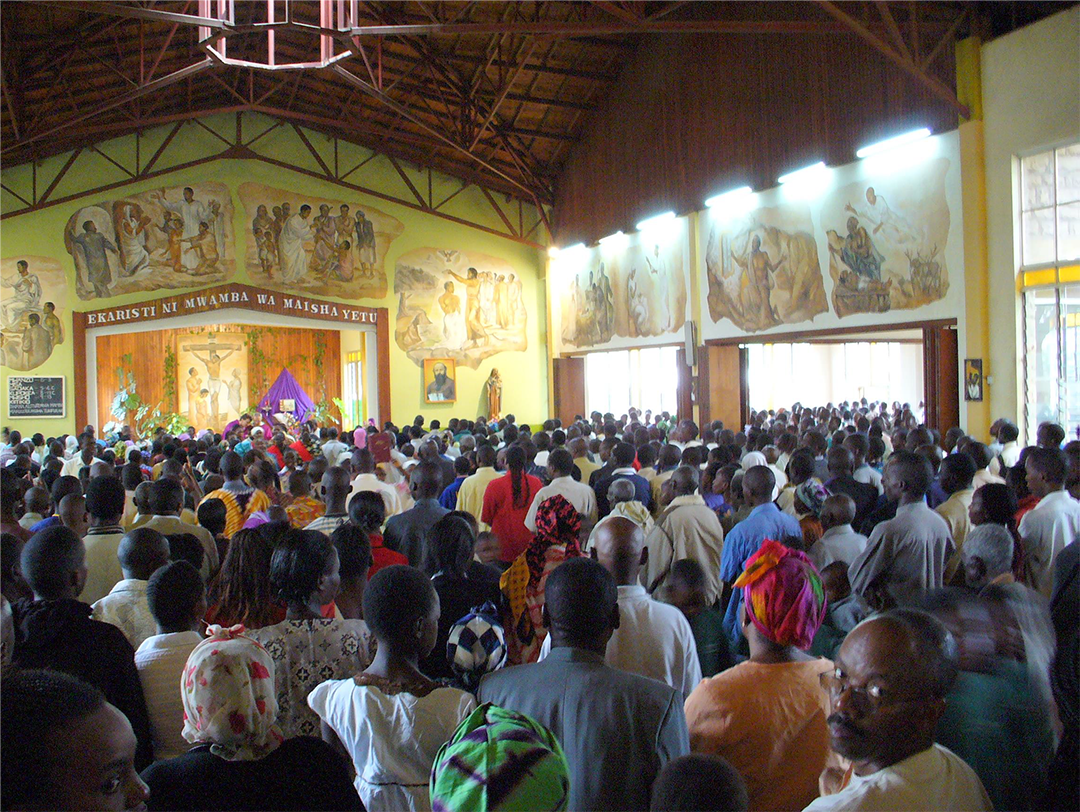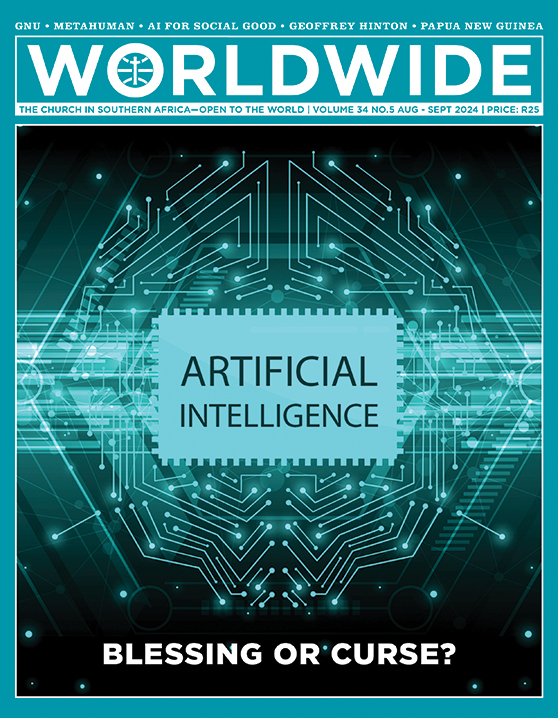
ARTIFICIAL INTELLIGENCE: BLESSING OR CURSE?
The image, according to Chat GPT, features the phrase “ARTIFICIAL INTELLIGENCE” at its centre, overlaid on a stylized depiction of a microchip and circuitry. This design symbolizes the integration of advanced AI technologies within modern electronic systems, emphasizing the critical role of AI in driving technological innovation and enhancing computational capabilities across various industries.
WITNESS • SOUTH SUDAN
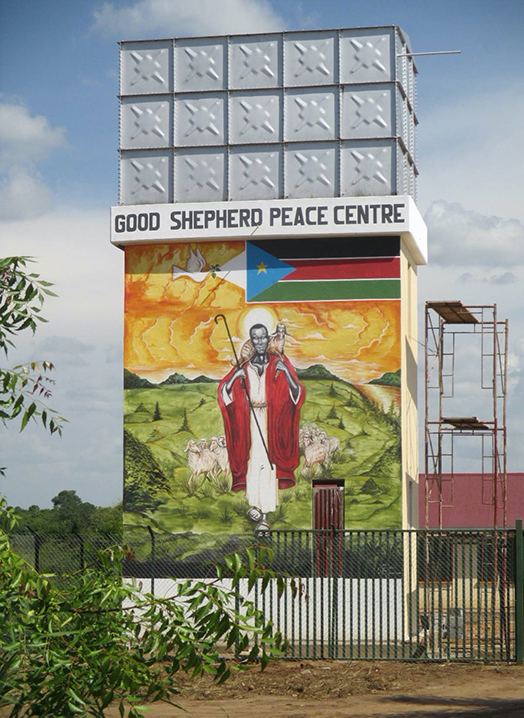
FAITH IN JESUS IS LIKE THERAPY
The people of South Sudan have suffered war and tribal conflicts for five decades. Comboni missionary, Brother Hans Eigner, talks about the difficulties of building peace and instilling the concept of loving one’s enemies in lands where revenge is a part of the reality.
BY BROTHER HANS EIGNER MCCJ | ELLWANGEN, GERMANY
“BE AT PEACE,” one reads at the entrance of the chapel in the Peace Centre in Kit, near Juba, the capital of South Sudan. I have been thinking about these words for a long time. They are difficult to translate into German. They are so concise, inviting, and soothing. It is an offer to all those who come to the Peace and Trauma Healing Centre to find their own inner peace—which brings about the outer one—and respect for humanity.
War and tribal conflicts
For too many years, the people of Sudan knew nothing but war: first, they suffered from the decades-long conflict between the Arab-dominated North and the restive black African South. Then in 2013, soon after the independence of South Sudan from Sudan in 2011, a never-ending tribal conflict between the two major groups, the Dinkas and the Nuer, followed; a conflict into which almost all the smaller tribes were drawn.
South Sudan now looks back on 50 years of war and its devastating consequences for its people. Generations were born and grew up during a time of war. Their everyday life still remains under the influence of the past. Without the rule of law, there cannot be security, peace, and human progress.
Most of the ministerial posts were filled by generals who had “distinguished” themselves in the war before independence. The local churches, wavering in that conflictual reality, were burdened by their ethnic affiliation and therefore could not contribute to solidarity. It was often easier for missionaries who came from the outside and were more independent; in many instances, they became mediators who were not involved in the friend-enemy mentality, which certainly creates confusion.
This Africa is very different from the one that I knew before—it is much tougher, more tense. To be honest, I have not always succeeded in bringing across the message and the values of Jesus, nor have I been able to put them into practice. My conviction, however, is that Christ is the answer to reconciliation and that He can dissolve hatred wherever it is present. Together with Fr. Raimundo Rocha, a Comboni missionary from Brazil, I often visited the camps of internally displaced people on the outskirts of Juba. Fr. Raimundo understood how to accompany people who bear their own traumatic situations. He was appreciated as a priest. There, I realized that our faith in Jesus Christ can become a therapy that heals and reconciles.
Those who take revenge are strong
In my own experience, rays of light and hope in missionary work were mostly experienced in personal encounters. Over the years, a culture of “self-survival” had developed. Thus, the message of love for one’s enemies resonated strongly in me. Not only were the people devastated, the land was too.
The largely fertile soil could easily feed the country’s inhabitants were it not for the constant insecurity and the displacement of entire ethnic groups. The law of Moses: “An eye for an eye, a tooth for a tooth” is a principle that seems to preserve many peoples in various parts of the world. If a tribe is no longer able to avenge itself, it is considered weak and doomed to destruction. Revenge becomes a valuable asset in the eyes of many people.
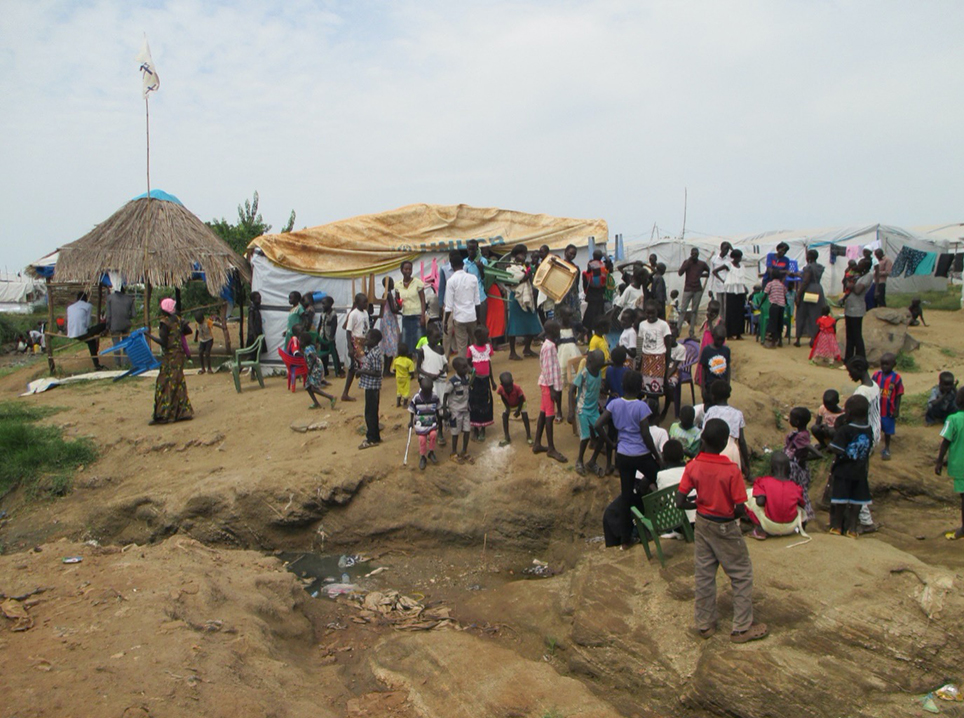
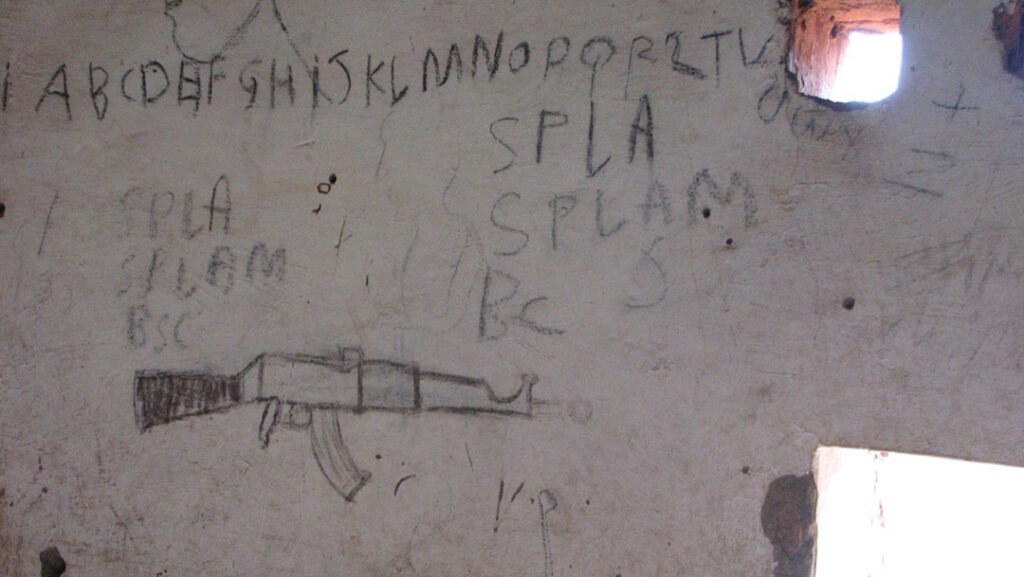
The South Sudanese are religious people. Nevertheless, the message of a God who demands love for the enemy remains a challenge among some. And yet, this is the only way to break the vicious circle of enmity and hatred. The question remains: who starts by giving in?
I got accustomed to the heat and the climate in South Sudan. However, the omnipresent military and the harshness of some individuals were experiences that rendered me powerless when faced by them. So, I was happy to be able to get involved in a peace project.
In a socially and ecclesiastically conflict-rife situation for decades, the 40 religious congregations present in the country conceived the idea of a centre, near Juba, for the promotion of peace and trauma healing. They recognized that emergency aid was a bottomless pit. They also identified a lack of space where people could meet. This led to the concept of building a peace centre. Together with good workers from the region, from Uganda and Kenya, I was able to work on this project. The work gave me great pleasure.
First steps towards peace
The “Good Shepherd Peace Centre” was completed with great effort and inaugurated on 15 October 2016. It promotes human and spiritual values, which were so badly destroyed during the past years of war. The centre has at its starting point and focus the precise point where the country and people suffer the most: enmity, hatred, and mistrust among ethnic groups; a lack of understanding for the common good and of the necessary conditions for a functioning state. As long as there is insufficient willingness for reconciliation, people who have been traumatised by war and blind violence will not find healing. It is therefore necessary, as Prophet Isaiah says, that ‘swords be forged into ploughshares’ (Is 2:4).
Peace is always possible through compromises and concessions; only a constructive struggle will bear fruit.
I take hope from the children who flock to the schools. They do not want to follow in the footsteps of their fathers and mothers, for whom only battle and retribution guaranteed survival. Education is an important prerequisite for peace: not only in South Sudan but everywhere in the world. Differences must be accepted, and disputes must be dealt with in a positive way. Peace is always possible through compromises and concessions; only a constructive struggle will bear fruit.
The Good Shepherd Peace Centre contributes to this concept of peace. Young people in particular are the starting blocks and want to do something different in their lives. They are searching for a moral compass. Jesus Christ and his example can be of significance to them. The Good Shepherd Centre gives an impulse for better and more peaceful lives to all who approach it.

